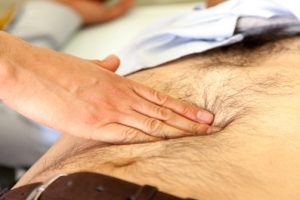Liver health is often overlooked, but it really shouldn’t be. The liver is responsible for over 500 different functions, and when it’s unhealthy, our overall health is affected as well.
Written by
Published on December 29, 2016

Unfortunately, the symptoms of a liver problem aren’t as clear-cut as the signs of other ailments. While aching stiff joints may indicate a joint problem, or chest pain makes you think about your heart health, liver conditions are manifested differently, so it’s important to be aware of the common symptoms that may prompt you to get your liver checked out.
Below are six symptoms associated with liver disease that you should never ignore.
6 symptoms of liver disease
Yellow skin: This one you may have heard of before, and it’s known as jaundice. The skin will have a yellowish color as a result of a bilirubin buildup in the blood. When the liver is diseased, it has a hard time breaking down bilirubin, so higher amounts of this compound will end up in the blood.
Change in urine or stool color: Just as the skin can appear a different color, so can your stool or urine. Your urine may be dark and your stool pale.
Itchiness: Although there is no visible rash in sight, your skin may feel itchy all over as a result of liver disease.
Unexplained bruising: In liver disease, bruising occurs far easier as the production of proteins essential for blood clotting slows down or is stopped altogether.
Swelling: Poor liver function causes water retention in the abdomen and legs, so patients may find these areas swollen.
No symptoms: Unfortunately, sometimes liver problems will not present any symptoms, and when the symptoms do appear it may often be at the advanced stages of the disease. Research has shown that nearly half of liver disease patients do not present any symptoms or symptoms are very non-specific such as fatigue, tiredness, lack of drive, and only occasional itchiness.
If you suspect your liver isn’t working as it should, or if you have risk factors for liver disease such as obesity or excessive alcohol consumption, speak to your doctor about ways to slow down its progression and treat your liver.